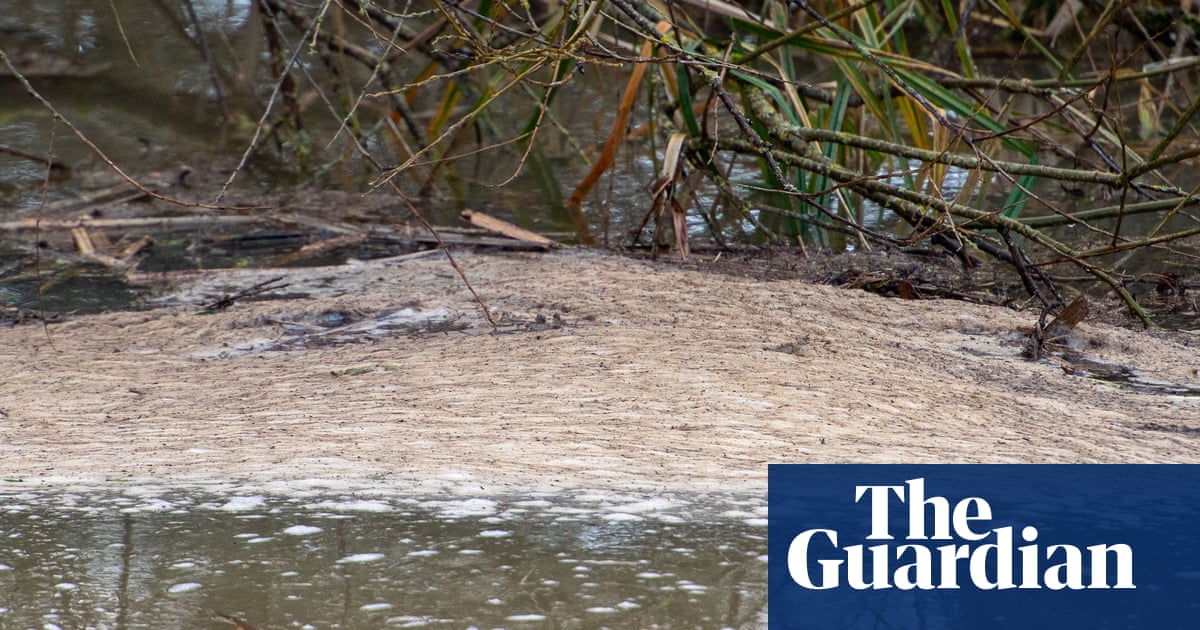
A criminal investigation into water companies in England has uncovered suspected widespread illegal sewage discharges from treatment plants, the Environment Agency has revealed.
The investigation into more than 2,200 water treatment plants run by all 10 water companies is examining whether the firms breached legal regulations about when and how frequently they are allowed to release raw sewage into waterways.
The EA said an initial examination of hundreds of documents from the water firms “confirmed that there may have been widespread and serious non-compliance with the relevant regulations”.
Breaching the legal regulations amounts to illegal dumping of raw sewage, and criminal penalties apply. Last year, Southern Water was fined a record £90m for illegally discharging billions of litres of raw sewage into coastal waters off Hampshire and Kent. The company argued in court that the discharges had not been deliberate, and said it was committed to transformation, transparency and cultural change.
The revelations came as members of the public, NGOs and charities rejected as too little and too late government plans to cut the scale of raw sewage discharges into rivers and seas.
Targets drawn up by government and put out to consultation include a requirement for water companies to reduce the frequency of discharges to bathing waters by 70% by 2035, or significantly reduce harmful pathogens they contain, for example by using ultraviolet radiation.
By 2040, 160,000 discharges of raw sewage through storm overflows into all waters should be eliminated, and by 2050 ministers are promising to eliminate approximately 320,000 discharges, about 80% of the total, into all waters.
The latest Environment Agency figures recorded the scale of raw sewage discharges from the 15,000 storm overflows in England in 2021 as 372,533 discharges for a combined total of more than 2.7m hours. In 2020, there were more than 400,000 sewage discharges, totalling more than 3m hours.
The majority, 55.2%, of the 18,268 people who responded to the consultation via 38 Degrees, a campaign group that regularly helps the public respond to government consultations, disagreed with the timescale and scope of the government’s targets. Questioned further, 83.9% said the timeframes being proposed by the government were much too long.
Matt Richards, campaign manager at 38 Degrees said: “The conclusion we can draw from this is that, regardless of people’s stated views of the proposed targets, the overwhelming majority want the government to move much quicker than they are currently proposing.”
Christine Colvin, of the Rivers Trust, said: “We think this plan gives us too little, too late. We need to see a broader scope that includes clear milestones for government as well as water companies, and much more urgency and ambition. We want to have healthy rivers fit for people and wildlife within the decade, not by 2050.”
Any release of raw sewage into rivers and coastal waters through storm overflows is supposed to take place only after exceptional weather and according to conditions in the permits issued by the EA.
Fish Legal, in its response to the consultation, also rejected the timeline and ministers’ proposed approach. It said the ambition to cut discharges into bathing waters was “extremely limited”.
The legal group also condemned the entire approach of the reduction plan. It said: “There appears to be an assumption running though this consultation that most storm overflows only happen due to excessive rainfall … The Environment Agency, as a regulator, also appear to have been working on that assumption … Our members and the public therefore do not share the Environment Agency’s confidence.
“The Environment Agency has previously taken a passive approach to regulating these discharges, relying on the water companies to collect and even analyse the relevant data. If nothing else, the current major investigation into water companies’ permit compliance is a tacit admission that operator self-monitoring and self-reporting – a situation whereby the water companies oversee their own works and report their own permit compliance – has not worked.”
A report by the environmental audit committee in January found that rivers were being subjected to a chemical cocktail of sewage, agricultural waste and plastic pollution.












